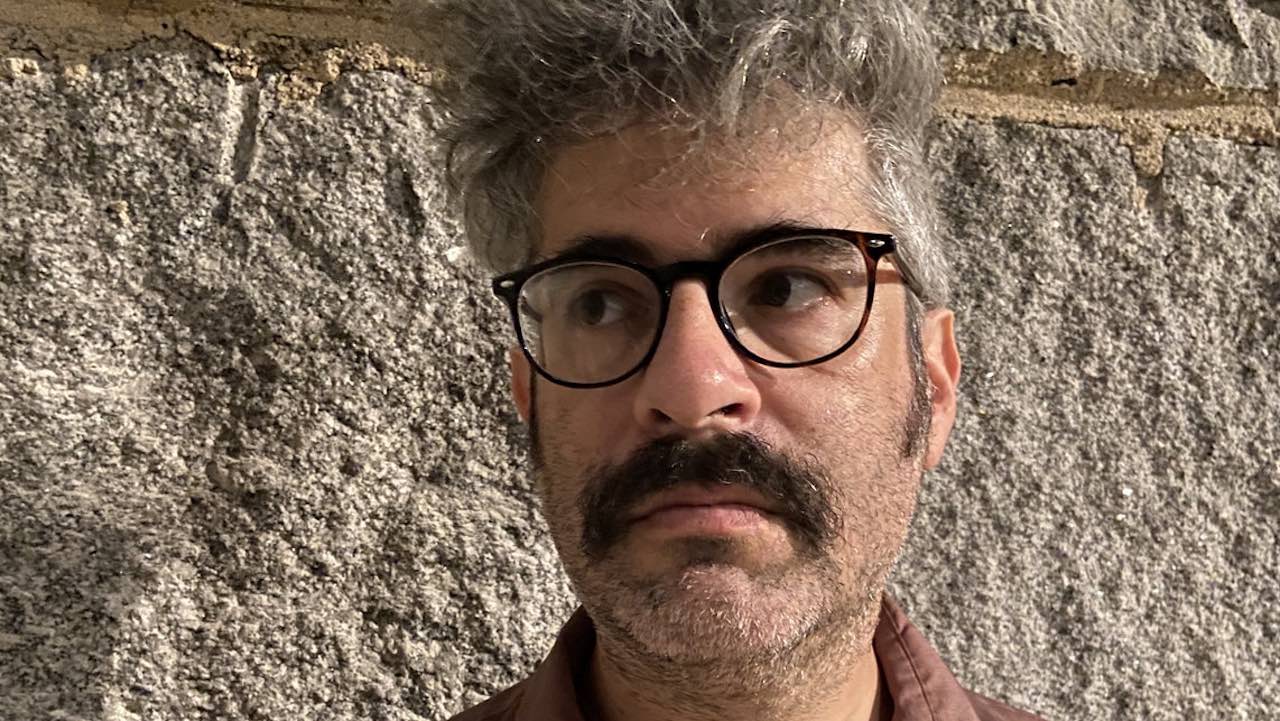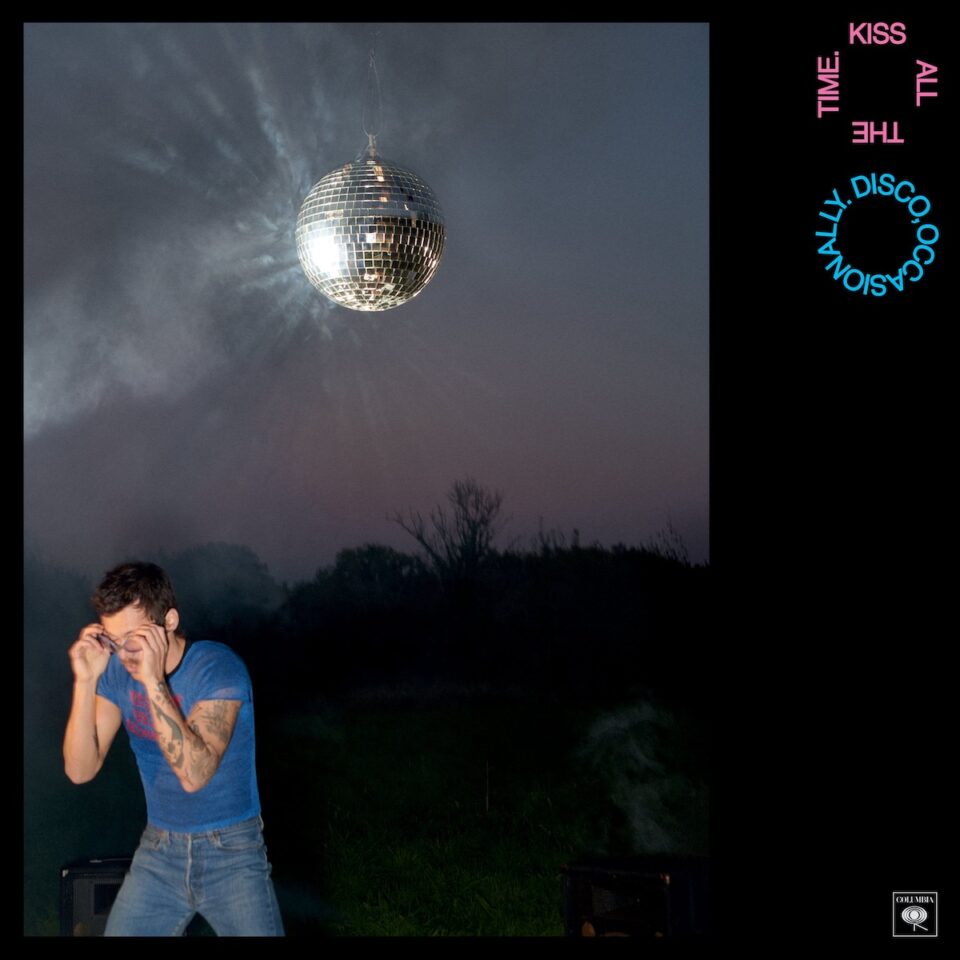Jeff Tobias doesn’t want to make music that you’ll forget. He wants to write words, chords, and melodies that linger, that hopefully move listeners to action. His latest LP, One Hundredfold Now in This Age, was spurred in part by this notion. In the track-by-track analysis he wrote for us, he speaks about how the album’s final track, “Don’t Quit the Band,” was inspired by an essay that calls “on artists to step up their game and actually try to heal people.” This was a notion he felt called to react to, and “Don’t Quit the Band”—and all of One Hundredfold—is music that aims to serve a purpose. “I respond to that kind of ambition, I take it seriously, and I aspire to make that kind of work,” Tobias says. “The idea behind this song was: Can I write a song that convinces someone to not kill themselves?” While he came to the realization than the horrors of suicide deem intervention difficult, there was something he could accomplish: “This was the best I could do: to share my own struggles, express solidarity, and try to make something beautiful.”
One Hundredfold Now in This Age is an album that aspires to say something, to draw a line and ask listeners to choose a side on which to stand. In our era of post-irony, where every attempt at sincerity is cloaked in layers of ambivalence and hedging, hearing an artist take genuine risks to engage potential action isn’t just inspiring, it’s galvanizing. Take a look at Tobias’ breakdown of each song on the album, and be sure to check out his additional work in great bands like Sunwatchers, Modern Nature, and We Versus the Shark.
1. “End It”
There’s a scene in the great horror film Hereditary where Toni Collette, possessed by a demon, rapidly bangs her head against a ceiling as a metaphor for dire futility and frustration. That’s how I felt when I realized that the US-Israeli death machine could not, at the time, be stopped by anything: not by protesting, not by voting, not by self-immolation. “End It” is me banging my head against that particular ceiling. Musically, I was going for the Soft Machine, but I probably landed somewhere closer to Chicago.
2. “Gimme Coherence”
This song is about how every single person walking the earth is under some kind of threat of displacement, due to any number of reasons: the ethical disaster that is the commodification of housing, climate change, war, etc. I say “buckle up” because you are going to have to move and it might not be your idea. What’s that? The song title neither appears in the lyrics nor has anything to do with them? That’s because I cut that line and didn’t bother to retitle the song! I hope this information is soothing.
3. “Arp (Burning Property)”
As a longtime admirer of Robert Ashley, I’ve wanted to work with text and the spoken word for a while, but the danger of committing aesthetic felonies with that approach is extremely high risk (see Jim Morrison, Anthony Keidis, et al). That’s partially why I enlisted as backing vocalists Dave Ruder and Aliza Simons, both of whom worked with Ashley extensively and are experts on what made his music go. They were like artistic character witnesses, keeping me honest and hopefully out of jail.
4. “Closed System”
This song nicely showcases the amazing Scott Smith (also known as the President of the Drums), who I have been playing music with in one form or another for two decades. I’m deeply fortunate to have had the opportunity to foster these kinds of long-running, on-and-off collaborations—so when I say “Play something like a beat from Cannibal Ox’s The Cold Vein, but jazz,” he understands completely.
5. “Letter to a Friend in Trouble”
The idea for this song evolved over the course of several years: I had the title in mind probably a decade or so ago for a song about trying to convince someone you care about to not believe something politically horrifying. This concept feels almost quaint now; it feels like we’re well past the point of having those kinds of conversations. Better, instead, to rally the people who you know are on your side, or, better yet, convert those who’ve fallen away from the political process altogether (they are legion). Kryssi from Mountain Movers absolutely slays here on guitar.
6. “This Is Everybody Not Talking About It”
USA is a Monster ripoff.
7. “Political Solution”
I wrote a whole post about this song here. This song couldn’t have existed without the kinds of things my dad raised me to believe, but it also couldn’t have existed without my mom listening to a lot of solo Annie Lennox when I was growing up.
8. “I Feel Hated”
One morning my clock radio woke me up with “I Would Die 4 U” by Prince and I just thought “OK, I need something at this BPM on my record.” So I sat down and programmed a recreation of the beat from that tune and wrote a song around that beat, then replaced the beat with a different beat that was written to be played by two drummers. This is the only “non-political” song on the album, because I figured the listener would want a break from the unremitting sociopolitical realness with a nice, upbeat song about self-loathing.
9. “The Scam”
In the first few weeks of the pandemic, I remember saying to my friend Joe Sidney: “Nobody is going to save us.” He replied: “Yeah! That’s a great jumping off point.” That conversation inspired this whole song, wherein I assume the voice of a character who has completely given up on humanity. The lowest and most nihilistic perspectives are often a knife’s edge away from somehow becoming idealistic. The guy in this song is this close to getting it.
10. “Don’t Quit the Band”
My friend and mentor David First wrote an essay that made a really big impact on me wherein he called on artists to step up their game and actually try to heal people. I respond to that kind of ambition, I take it seriously, and I aspire to make that kind of work. The idea behind this song was: Can I write a song that convinces someone to not kill themselves? I realized during the course of writing the song that the answer was almost certainly no, because that’s what makes suicide so terrifying: We can’t control the minds and actions of others. This was the best I could do: to share my own struggles, express solidarity, and try to make something beautiful.







